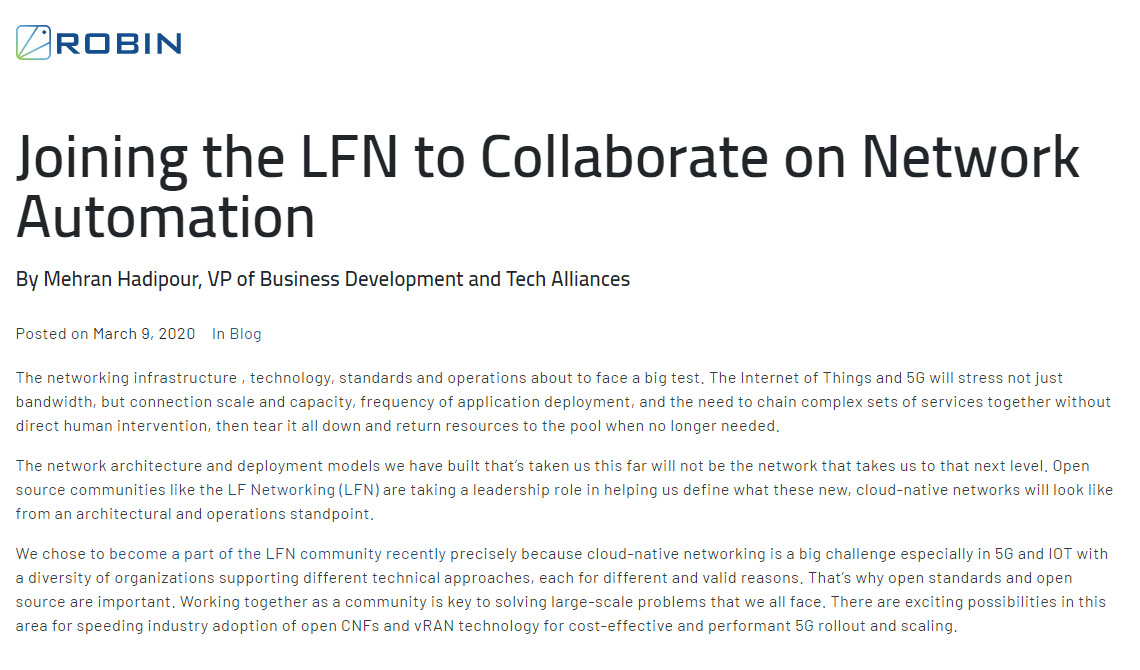Joining the LFN to Collaborate on Network Automation


The networking infrastructure , technology, standards and operations about to face a big test. The Internet of Things and 5G will stress not just bandwidth, but connection scale and capacity, frequency of application deployment, and the need to chain complex sets of services together without direct human intervention, then tear it all down and return resources to the pool when no longer needed.
The network architecture and deployment models we have built that’s taken us this far will not be the network that takes us to that next level. Open source communities like the LF Networking (LFN) are taking a leadership role in helping us define what these new, cloud-native networks will look like from an architectural and operations standpoint.
We chose to become a part of the LFN community recently precisely because cloud-native networking is a big challenge especially in 5G and IOT with a diversity of organizations supporting different technical approaches, each for different and valid reasons. That’s why open standards and open source are important. Working together as a community is key to solving large-scale problems that we all face. There are exciting possibilities in this area for speeding industry adoption of open CNFs and vRAN technology for cost-effective and performant 5G rollout and scaling.
The LFN facilitates collaboration and operational excellence across open networking projects. It is a part of the Linux Foundation, an organization that supports developers and companies in building ecosystems that accelerate open technology development and industry adoption of open standards.
At Robin.io, we’re working with companies like Rakuten Mobile, Parallel Wireless, and Altiostar to create technologies that make automation in Cloud-native 5G network deployment on top of open standards a reality. Working with the LFN community is one way we can share what we’re learning with the goal of creating common approaches to problems and converging on solutions more quickly than we could if we were working solo.
In the months ahead, we’ll be talking more about how we’re going to contribute back to the LFN community, both as participants and as upstream contributors for projects like ORAN. Stay tuned!
